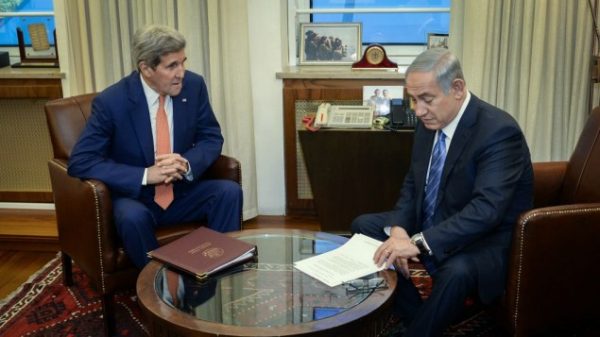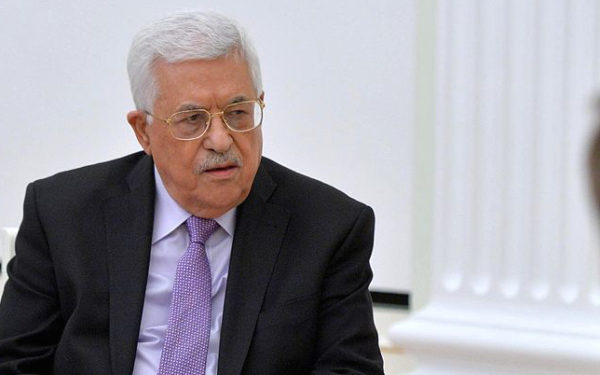If Israel is ever to make peace with the Palestinians, Prime Minister Benjamin Netanyahu will have to display a lot more courage and backbone.
In recent days, the Israeli newspaper Haaretz has reported that Netanyahu was prepared to restart peace talks with the Palestinians, broken off three years ago, in the hope of negotiating a comprehensive accord with the Palestinian Authority.
According to the daily, Netanyahu flew to Cairo in April 2016 on a secret mission to discuss the idea with Egyptian President Abdul Fattah el-Sisi, who offered his assistance to facilitate a historic Israeli rapprochement with the Palestinians.

Netanyahu was accompanied by opposition leader Issac Herzog, whom he was thinking of bringing into the government. Netanyahu wanted Herzog in his cabinet for two overlapping reasons. Herzog has a reasonable approach to peacemaking, while Netanyahu’s hardline ministers hew to a hard line toward the Palestinians and object to compromises that would entice Palestinian Authority President Mahmoud Abbas back to the negotiating table.
Netanyahu reportedly backed out of the process after learning that hawkish senior members of his Likud Party would oppose concessions he might be ready to dangle before the Palestinians. “Once he brought in people from his own party, they smashed the whole thing to pieces,” Herzog said.
As a result, the eight-point peace plan that Netanyahu and Herzog were to have released was still-born, and yet another opportunity to resolve the Arab-Israeli dispute was squandered.
It seems clear that Netanyahu, the consummate politician, caved in because political survival is more important to him than advancing the cause of peace.
Netanyahu appears to have exhibited the same kind of behavior in 2014, when Israel and the Palestinian Authority were engaged in what turned out to be a futile nine-month effort to resolve their deep-seated differences.

Tzipi Livni, Israel’s chief negotiator at those talks, now says that Netanyahu was willing to work out a deal with the Palestinians based on the 1967 boundaries. As a Haaretz report said:
“The new secure and recognized international borders between Israel and Palestine will be negotiated based on the 1967 lines with mutually-agreed swaps whose size and location will be negotiated, so that Palestine will have viable territory corresponding in size to the territory controlled by Egypt and Jordan before June 4, 1967, with territorial contiguity in the West Bank.”

Netanyahu, Livni claims, was ready to negotiate a two-state solution. When U.S. Secretary of State John Kerry presented him with a framework agreement calling for negotiations to be based on the 1967 lines, he accepted. But apparently Netanyahu asked the United States to provide him with “deniability” to protect him from his rejectionist political base in the Likud Party and the electorate. “What you hear from him today,” she added, “is a renunciation of that position.”
Netanyahu, however, was not the only obstacle.
Abbas rejected the first draft of Kerry’s framework agreement and never even bothered to respond to the second draft, reports Haaretz. Under the terms of Kerry’s framework, Israel was recognized as a Jewish state, Jerusalem was designated as the capital of both states, and the Palestinian demand for a right of return was omitted.

U.S. President Donald Trump should keep these events in mind as he and his team try to resume peace talks. Presumably, Trump already knows he will have to be forceful with both Netanyahu and Abbas if he is to achieve even a modicum of success. As a U.S. State Department spokeswoman said the other day, both sides will be “forced to compromise.”
But this is an outcome that will not materialize unless Netanyahu — and Abbas — set aside selfish personal considerations and focus on the task at hand — ending a bloody conflict that has gone on far too long, claimed the lives of far too many people and destabilized the region.
